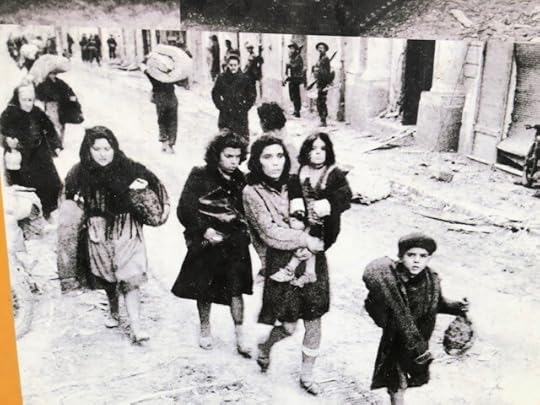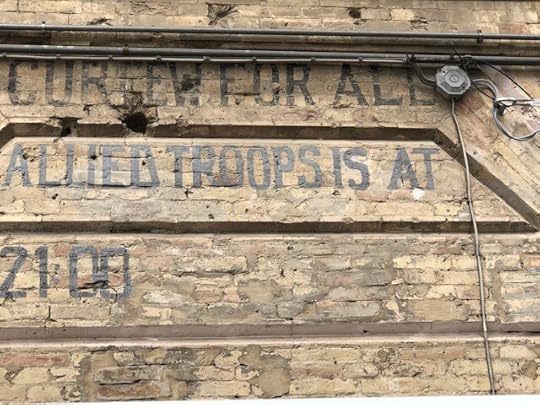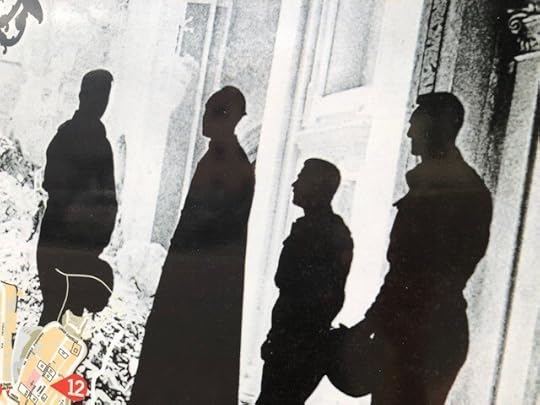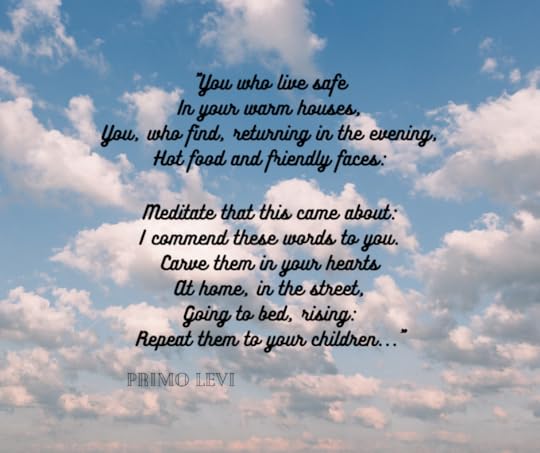Are we obsessed?
The awful recent pictures from Ukraine: images of homes bombed to smithereens, people fleeing to shelter, bodies of civilians, as a result of Russia’s barbaric attacks on Kyiev are heart breaking. Why, oh why is this happening? Will we ever learn?
The whys and wherefores are too complex to unravel here. But it makes me think about our seeming obsession with war. What is it about man and why are our memories so short-lived? There are many books on the market at the moment featuring World War Two. And they sell. I’ve written a few, but why the interest?

Ten days ago, I was in Abruzzo, revisiting places that inspire me for my writing. Many of the locations appear on the pages of The Postcard from Italy . We stopped off in Ortona, a pretty coastal town, but scene of a bloody World War Two battle. Here, the culmination of Adriatic fighting that came to be known as “Western Stalingrad”, was played out. Brutal house-to-house fighting in late December 1943 razed 80% of the town to the ground as the Canadian Light Infantry (Princess Patricia’s) fought with elite paratroopers of the German First Parachute division. The evidence, seventy-nine years on, is still there. And left deliberately as a reminder. Gaps in rows of houses left derelict; shelves and fireplaces still visible, where relatives of the dead refuse to allow rebuilding because these gaps are where their uncles, aunts, grandparents, cousins and siblings perished. The lady in the tourist office marked all the spots for me on a street map and it was like visiting graves as we walked to find them.

 Still in evidence on the side of a shop wall 79 years on: a note about curfew
Still in evidence on the side of a shop wall 79 years on: a note about curfewMy theory for our obsession about war is grounded in not a morbid curiosity (although that is also one aspect), but fear. Fear that the last world war is really only a fingertip away from many of us and these scenes can repeat so easily. I am a child of the early 1950s and my parents did occasionally talk about their war. They glossed over the awful parts because they didn’t want to traumatise their children or rake up bad memories for themselves. Maybe they believed that what they had lived through was no different from millions of other’s experiences and so why did they have the right to talk about it? I wish I could ask them now. I can’t. So, I write my questions in my books.
The dreadful thing is that we are once again only a fingertip away from what could easily escalate into another Great War. And we should never forget what war is about. Those images on the television news, on our phone feeds, on the front page of our newspapers are not entertainment. They are reality.
Primo Levi, a holocaust survivor who wrote about his experiences in If this is a Man
urges us:
“All those who forget their past, are condemned to relive it” and “If understanding is impossible, knowing is necessary, because what happened can return, consciences can be once again seduced and obscured: even our own.”



This morning, I feel guilty for not engaging more; for failing to act on my conscience. I could have done so on Saturday. Sipping a cool drink in a park in Arezzo, I was served by a Russian waitress. I asked her if it was difficult for her being in Italy. Her response was unexpected, but maybe that was naïve of me. She said, ‘Yes, it is very difficult when the president of the United States is causing this war. Look what he has done now: bombed the bridge to Crimea.’
There was my opportunity to reason with her, but I thought it futile: she was so convinced of the propaganda she’s been fed. And I thought to myself, what is the point? She won’t listen to what I have to say. She will simply retort that I am brainwashed… Talking to friends last night, they said they would have got up and left. What would you have done? What can we do? It made me question what I might have done seventy-nine years ago. Would I have had the courage to join up with the brave women who fought in whatever way they could as partisans for the freedom of their country? Fighting is not simply about wielding guns; it is about reasoning and diplomacy too.
To sum up, I believe one of the reasons why we should concern ourselves with war – made accessible through as much information as we can glean, (which includes our novels) – is so that we educate ourselves with the memories – and don’t repeat the same mistakes.
I would love to hear your feelings.




